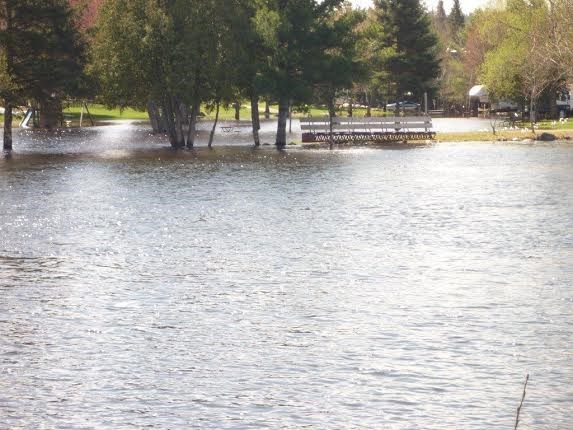Natural disasters may be beyond our control, but there are ways to reduce the risk and the impact of whatever emergency we might face - whether natural or human-induced.
Emergency Preparedness Week (May 2-8, 2021) encourages you to take concrete actions to be better prepared to protect yourself and your families during emergencies.
"We know that emergencies can happen anywhere, anytime and during these events, response agencies such as Police, Fire and EMS will focus their efforts first where the need is greatest which is why individual emergency preparedness is so important. The first 72 hours of an emergency are critical and every family should be prepared to be as self-sufficient as possible," says a news release from the North Bay Fire Department.
By taking a few simple steps, you can become better prepared to face a range of emergencies – anytime, anywhere. It is important to:
- Know the risks – Although the consequences of disasters can be similar, knowing the risks specific to our community and our region can help you better prepare. Risks such as storms causing major power outages, flooding and wildfire.
- Make a plan – In an emergency, your family may not be together when disaster occurs or you may be asked to evacuate your home. Have a plan including how to communicate and where to meet.
- Get an emergency kit – During an emergency, we will all need some basic supplies. We may need to get by without power or tap water. Be prepared to be self-sufficient for at least 72 hours in an emergency.
Visit www.getprepared.ca for more resources to help you and your family prepare for all types of emergencies.
"This year, the COVID-19 global pandemic continues to have an unprecedented impact on Canadians and now more than ever, we understand that we all have a role to play in emergency preparedness. This week, we encourage you to take concrete actions to be better prepared. Please do your part! Experience has shown that individual preparedness goes a long way to help people cope better - both during and after a major disaster. Get an emergency kit now - it can make a world of difference," says the release.
The Emergency Survival Kit Checklist below outlines the basic items every individual should have:
- Flashlight and batteries
- Radio and batteries or crank radio
- Spare batteries (for radio and flashlight)
- First-aid kit
- Telephone that can work during a power disruption
- Candles and matches/lighter
- Extra car keys and cash
- Important papers (identification)
- Non-perishable food (ready-to-eat items that do not require refrigeration)
- Manual can opener
- Bottled water (4 litres per person per day)
- Clothing and footwear
- Blankets or sleeping bag
- Toilet paper and other personal items
- Medication
- Backpack/duffle bag
- Whistle (to attract attention, if needed)
- Playing cards



